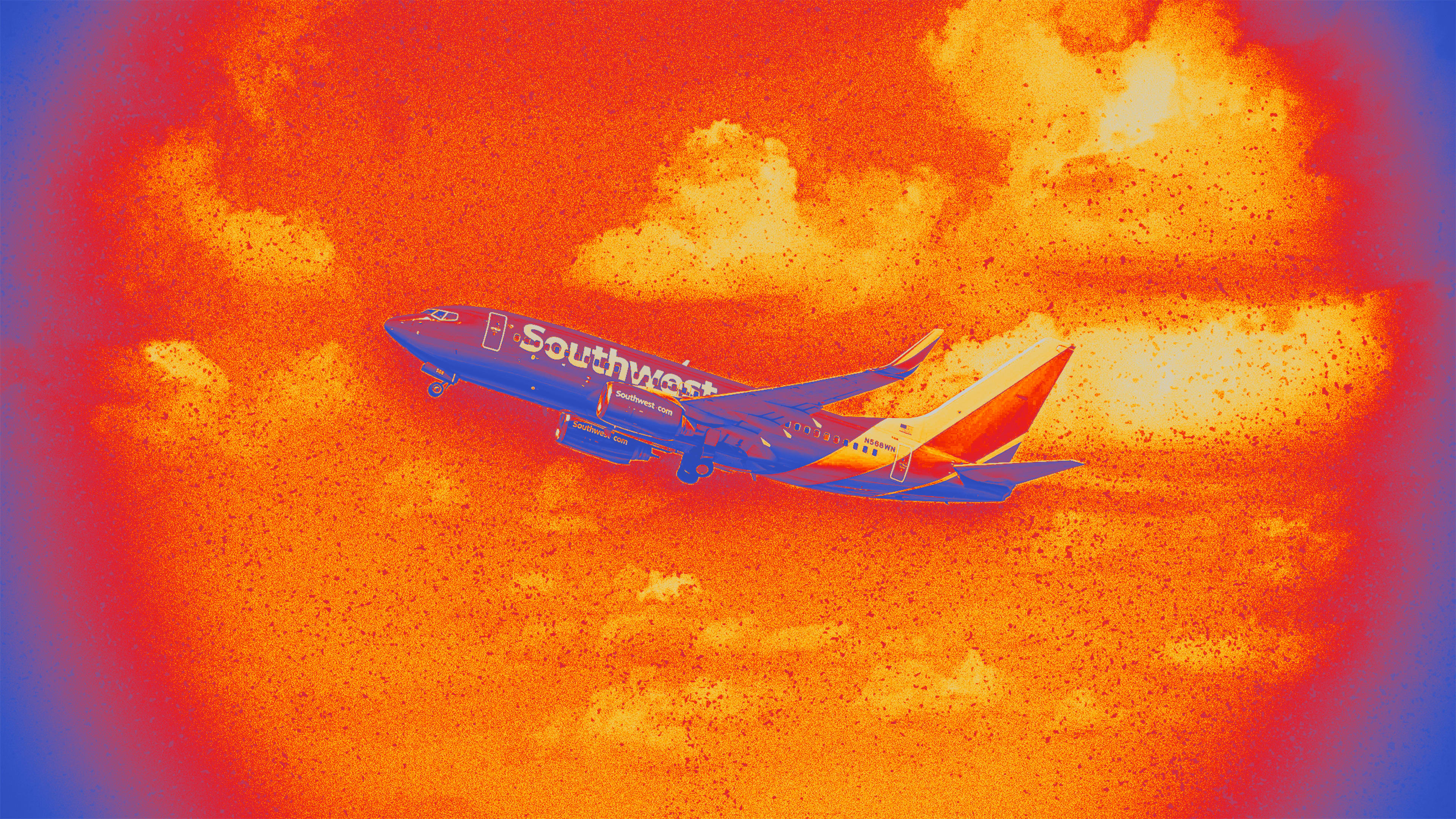Branded is a weekly column devoted to the intersection of marketing, business, design, and culture.
Southwest Airlines, a long-beloved brand in a seldom-beloved category, is navigating one of the most turbulent patches in its history—and lately, the budget-carrier innovator has been considering some truly surprising maneuvers to get back on course. In its most recent disappointing quarterly results, the company reported a loss of $230 million, worse than analysts expected. Its stock is down about 20% since early March. The company’s CEO has even hinted at a rethink of Southwest’s famous self-seating procedure. And if the distinctly Southwest experience of milling about with fellow passengers long before takeoff is up for grabs, what isn’t?
Some of what’s troubling Southwest is attributable to forces beyond its control. But some of its challenges reflect not only the airline’s missteps, but its struggle to respond to shifts in the air travel business that might require the one-time pioneer to update its storied brand.
The biggest external headache: Southwest’s fleet is exclusively jets from Boeing, which is obviously facing its own (severe) struggles. Southwest has said it now expects to receive just 20 of 79 planned 737 Max deliveries this year; it’s also in limbo on receiving smaller MAX planes awaiting approval from regulators. That’s thrown a wrench into expansion plans. Instead, Southwest has announced it will pull out of four airports, “restructure” its operations in others, and reduce headcount by 2,000 this year. And it doesn’t help when incidents like an engine cover coming off one of Southwest’s Boeing 737-800 jets last month make headlines.
But as CEO Bob Jordan has conceded, the problem “isn’t just Boeing.” Most notably, Southwest Airlines took a huge reputational detour in the wake of the 2022 holiday season, when it canceled over 16,000 flights, a service debacle that culminated in a congressional hearing. The airline recently announced details of its $140 million settlement with the Department of Transportation stemming from the meltdown, including $90 million in travel vouchers to passengers delayed three or more hours.
Meanwhile, the minimalist-but-fare-saving approach that once made Southwest stand out (peanuts instead of a meal, to cite one of the examples that helped make its name as a budget disruptor decades ago) has become familiar across U.S. carriers. Democratizing air travel isn’t the fresh idea it once was in Southwest’s formative era; the whole sector has absorbed general budget-flier tactics (not just of Southwest, but also discount rivals Spirit and Frontier), including balancing lower fares with extra baggage and other fees. In fact, open seating is one of Southwest’s last remaining true outlier practices.
But maybe giving that practice a fresh look makes sense: Southwest is no longer a fast-moving, nervy underdog, fueled by a fun attitude and self-professed “luv” for its like-minded customers. A number of analysts have questioned whether Southwest is missing a revenue opportunity that other airlines have profitably exploited with a wider range of seating fees and upsell options.
Southwest Airlines has previously resisted that critique. And the company has indicated that it’s sticking with some of its other best-known brand attributes for the everyday flier, eschewing a first-class cabin option, and sticking with its no-fee policy on a flier’s first two checked bags. That’s why it got so much attention when Jordan told CNBC that the airline is “looking into new initiatives, things like the way we seat and board our aircraft.”
In a way, Southwest’s unique seating ritual embodied the unfussy value that the brand offered its loyal customer base: a participatory symbol of transparency and thrift. But, as Jordan also conceded: “Customer preferences do change over time.” (In fact, the latest wrinkle in the open-seating debate is grumbling from some Southwest regulars that others abuse the preboard option to jump the line—a move that’s less “we’re all in this together” than the “all against all” vibe that’s become so pronounced among travelers since the pandemic.) Business models, and the brand identities that sell them, change over time. Maybe Southwest is ready to get on board with that reality.
Recognize your brand’s excellence by applying to this year’s Brands That Matter Awards before the final deadline, June 7.
Sign up for Brands That Matter notifications here.
